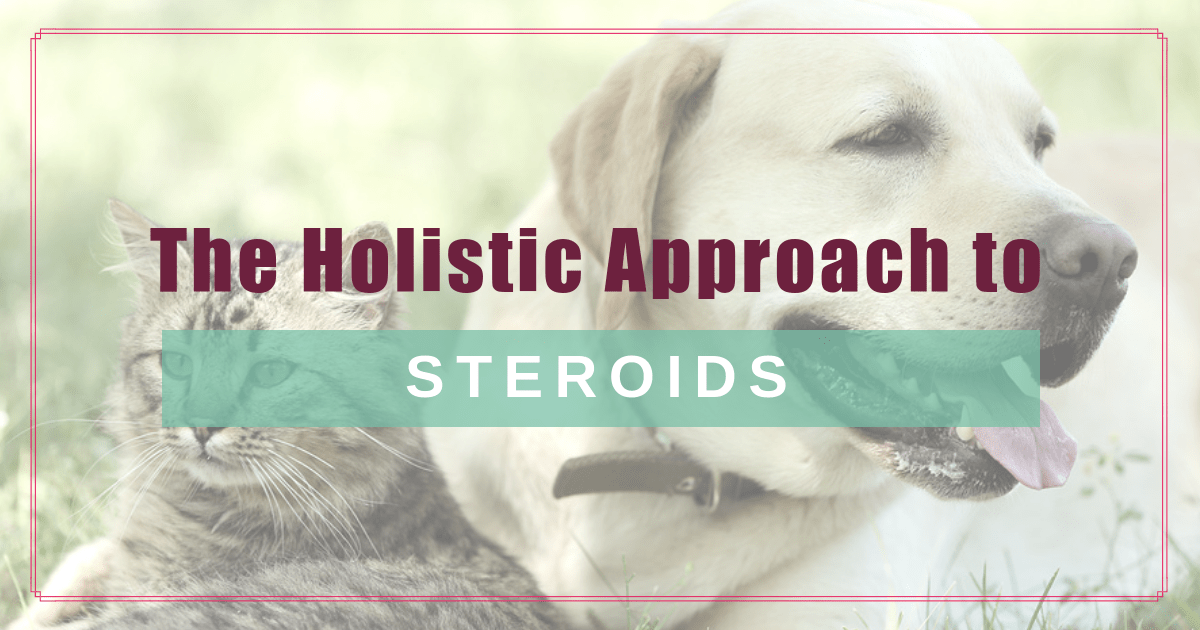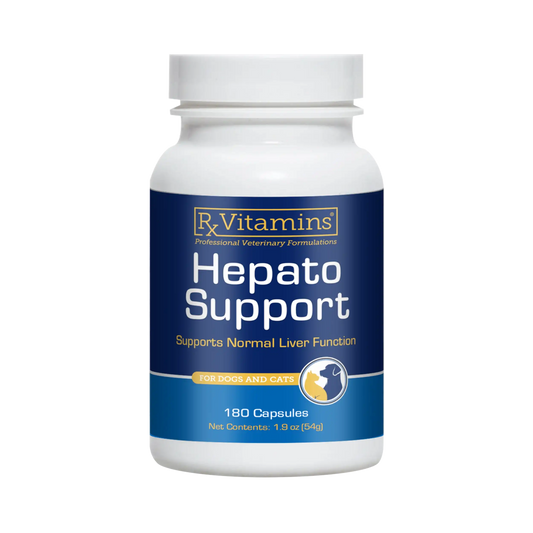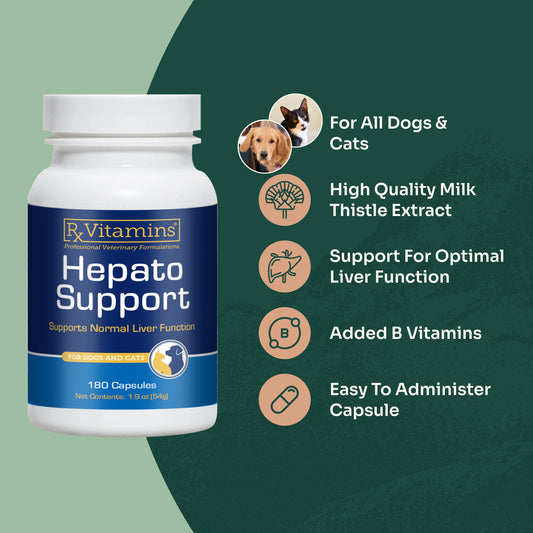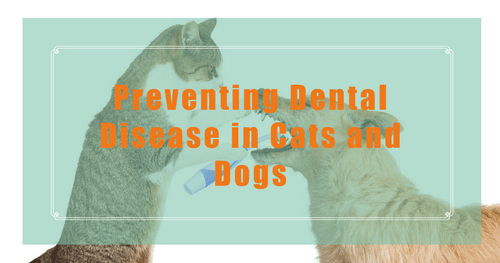If you are like many of my clients, you want to avoid steroids for your pet. As a holistic veterinarian, I also want to avoid steroids for my patients; however, there is a time and a place for the judicious use of steroids in cats and dogs. In this article I am going to outline the benefits and risks of steroids to help you make an informed decision for your pet.
First let’s start with the benefits:
Steroids can be a magic bullet for certain inflammatory conditions. When we can help decrease swelling and inflammation, we can help the body heal more quickly. Here are examples of conditions that I treat with steroids.
- Ear infections – I recommend using topical steroids. However, if the ear canal is too swollen for application of ointment, I will use 1–2 doses of a low dose steroid. It is magic! I also use a steroid combined with an enzyme to help prevent ear infections in dogs that have had chronic ear infections.
Holistic Health Tip – If your dog or cat suffers from chronic ear infections, they may have a food allergy or sensitivity. Investigate their diet and consider removing grain, corn, soy and gluten. Other common allergens are chicken, beef, and fish.
- Intervertebral Disc Disease (IVDD) – Many veterinarians use non-steroidal anti-inflammatories (NSAIDs) such as Rimadyl instead of steroids. In my 10 years of practice, I have found that steroids are far superior in controlling symptoms and helping regain mobility.
- Autoimmune Disease – This is when steroids are non-negotiable. Autoimmune diseases occur when your pet’s immune system attacks the body. These are often life threatening and require steroids and other immunosuppressants for survival. The most common forms of autoimmune disease in dogs are immune mediated thrombocytopenia (IMT), immune mediated hemolytic anemia (IMHA) and lupus. Autoimmune diseases in cats are less common.
- Inflammatory Bowel Disease (IBD) in cats – This disease often causes vomiting, diarrhea, and weight loss. In less severe cases, we can manage the disease using diet and supplements alone. However, in very severe cases, steroids are needed to manage symptoms. I just recently started my own kitty on steroids. I tried using diet, supplements and herbs with no success. He has lost half of his body weight and would have wasted away without medical intervention.
- Allergic Reactions – If your pet is having an allergic reaction, steroids and antihistamines may be life saving.
Now let’s talk about the downside of steroids:
It is important to understand that if your pet needs to take a short or even a long course of steroids, the side effects are reversible. This is worth repeating. The side effects of steroids are reversible.
This is why I don’t worry about short courses of small doses and you shouldn’t worry either.
Here are all the reasons why we want to avoid steroids.
- Your dog might pee in the house – Steroids cause both cats and dogs to drink more and urinate more. It is really important that while on steroids you give your pet access to fresh water at all times. This will help protect their kidneys.
- Increased appetite – For some animals, steroids can cause a voracious appetite. This is dose dependent and is different for every animal.
- Behavior changes – Some animals can become cranky, aggressive, or even lethargic on steroids.
- Stomach/intestinal ulcers – This can be prevented by using antacids to help protect the lining of the stomach and intestines. If your veterinarian prescribes steroids, talk to them about ulcer prevention.
- Damaging gut flora – Steroids can cause an imbalance in the bacteria in the gut and lead to digestive problems.
- Long term side effects – This is when things really get ugly. Unless your dog has an autoimmune disease, it’s best to avoid long term steroid use. Thinning of skin, damage to the liver, loss of muscle, loss of hair, immune system suppression, and weakening of ligaments are just a few of the most common side effects of long term steroids. Also, long term use of steroids can cause diabetes mellitus in cats. If caught early this can be reversible. Some pets require long term use of steroids. Work with your veterinarian to find the lowest dose possible, while still controlling symptoms.
What to do if your pet needs to be on steroids:
If your pet has been on a course of steroids here is a protocol that you can use to help support their body afterwards. I use this protocol for a month after using steroids.
- Repopulate the gut with healthy bacteria – You can achieve this by using over the counter probiotics or by making fermented foods. If your pet has been on steroids, I recommend using both for maximum effect. Culturelle makes single strain probiotics that are not cultured on dairy.
- Provide liver support with milk thistle – Steroids are taxing on the liver. Good news, the liver is a master at rejuvenation! I like to use Hepatosupport by Rx Vitamins for Pets. This is a great supplement to use regularly.
- Repair the gut with Bone/Meat Broth – The collagen found in broth is an excellent way to help repair the gut after a round of steroids. Broth is also very mineral rich. Click here for my chicken broth recipe for cats and dogs.
- Support detoxification with regular exercise – Increased blood and lymphatic circulation can help your pet flush out metabolic waste. I recommend daily leash walking for dogs (and cats if you have worked that out). Chances are walking on a leash is not your cat’s cup of tea. Check out these food puzzles to help get your kitty moving.
Here are a few parting tips about steroids:
- If your pet needs a short dose of steroids, it is not the end of the world.
- Make sure you never give drugs like Rimadyl while giving steroids.
- Work with your vet to use the smallest dose of steroid for the shortest amount of time. Sometimes a whisper dose of steroids can be immensely helpful.
- Remember to follow a course of steroids with the protocol I listed above.
- Never stop steroids without your veterinarian’s instruction.
Has your pet ever taken steroids? Tell me about it in the comments below. Remember, you are doing a great job and your pet is lucky to have you!
With love,
Dr. Angie




